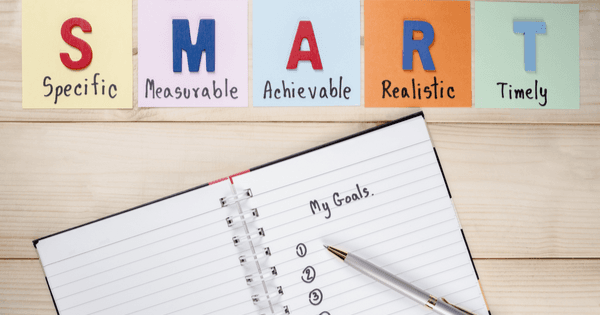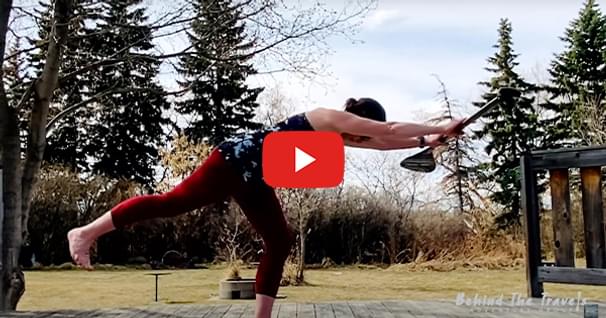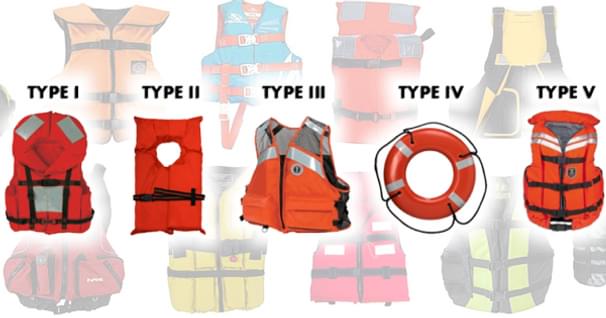The Importance of Setting Paddling Goals
What would you do if money were no object? This isn't a trick question. Grab a pen and paper and write down this question and then a bullet point list of answers. If you're reading this article, there's a good chance that you're an avid paddler and that at least one of the answers on your list has something to do with paddling. Maybe you would go on your dream kayaking or canoeing trip, or buy a new boat, or take a lesson with one of the experts in the industry or maybe you would fit paddling into your schedule more often. Wouldn't all of this be awesome!? But now you may be wondering what the point of this exercise is since most of us are on a budget. It's simple: This exercise is one of the most effective ways to set goals and achieve them.

Why set goals? Because goals are inspiring and give us something positive to focus our energy on, which, in turn, brings about positive change in our lives. Setting goals helps us to envision our best selves accomplishing amazing things. According to Brian Tracy, an expert in business achievement consulting, "When we set goals, we develop direction, we develop focused and channeled energy, and we accomplish more in a short time than we could accomplish in years." Setting goals for your paddling will get you motivated to paddle, get you on the water more often, which means more time to enjoy yourself and have fun!
Getting Over Fear of Failure
Goals are for everyone, not just high-end competitive athletes. We don't have to always set lofty goals like making the National or Olympic team. Our goals may be simpler like getting in our kayak once a month, or once every weekend during the summer. Maybe your goal will be to improve your forward stroke or build strength in your core for more effortless paddling, lifting and loading. Goals come in all shapes and sizes because we come in all shapes and sizes!
If setting goals is so awesome and brings about so much positive change then why doesn't everybody do it? There are a number of reasons, but ones that stand out in particular are lack of support and fear of failure. Have you ever thought of a really cool idea that you were excited about and shared with a friend only to be told that it wouldn't work? I certainly have. When I first came up with the idea of producing an instructional kayaking DVD for women and offering women's only kayak classes, I definitely got some negative feedback. Luckily, I didn't let it discourage me and kept my focus on my goals. Now I have a thriving business based on women's kayak instruction, trips and retreats!
I've read a lot of business books and one of the most common threads in all of them is that entrepreneurs often get told that their ideas are crazy, silly, or unrealistic. This was said to the founders of companies like Starbucks and Microsoft! We usually only hear of people once they are successful and assume that they have some special talent that we don't have that made them so successful. That just isn't true. For instance, I started my paddling career working in the kitchen of a rafting company. Most of the guides and paddlers never thought that I would ever paddle. Their nickname for me was 'kitchen girl' and they wouldn't give me the time of day. But I had a goal: Learn to kayak. And I stuck with that goal and sought out people who would teach me and got on the water every chance I had until I was good enough to make the National Freestyle Team.
We all have amazing potential to be successful and good at something. And becoming good at something like kayaking can skyrocket our confidence and self-worth in all aspects of our lives. Setting goals is an important part of developing that success on the water and off the water.
You may ask: What if I set a goal and then fail to achieve it? Fear of failure is probably the biggest reason people don't set goals. Yet there is opportunity in failure. Most successful people know this. When I was competing on the whitewater kayaking freestyle circuit, I always learned more from the competitions in which I 'failed' than the ones in which I made the podium. Failure is in the eye of the beholder. You can choose to see an opportunity to learn from your mistakes and experience or you can choose to allow 'failure' to hold you back. It's all in your attitude and if you have a strong set of goals then it's easier to learn from the situation and then set those lessons in motion toward your goal.
How to Set Goals
Now let's get to the good stuff of how to set goals.
- Get a pen and paper (I wasn't joking at the beginning of this article!) and write down the question: "If money were no object I would…" Write down your answers below in bullet points. Write up to twelve answers.
- Choose the ones that sound the most realistic to you. This is important because to be achievable goals have to be realistic. That doesn't mean that you don't write down the super lofty goals. Please do!! But it's important to discern that winning the lottery tomorrow may not be the best goal to focus your energy on.
- Take another sheet and make two columns. At the top of the left-hand column write 'Goal' and at the top of the right hand column write 'Steps.' Write the goals in the left-hand column and then write down the steps or actions you are going to take to achieve each goal. Start with an action you can do right now. Perhaps it's emailing friends to plan a kayak outing or maybe it's starting a savings account for that new boat. There is always some action, however small, that you can take right now. Maybe it's changing your attitude. Check the steps up as you go and modify them as you gain experience and momentum.
- Post your goals in a spot where you see them everyday. Read them everyday and only share them with people who support your goals, especially if you're setting goals for the first time.
These are the basics of goal setting. I encourage you to reflect on your paddling and set a few goals for the year. Start off small with goals and steps that you feel are attainable. Once you see the results from these then start setting loftier goals. Keep your goals in sight, take the steps and get ready for your potential on and off the water to explode!
Related Articles
If there are times that you can't kayak as much as you would like due to an injury or because the…
Lisa Stocking takes you through a 5 minute paddle exercise routine. This routine is great for all kinds…
In my opinion, the quote: "Failing to plan is planning to fail" is a bit dramatic as I do enjoy…
Tom Watson reviews some of the changes that are in store for defining “Life Jackets” and “PFDs”? It’s…



